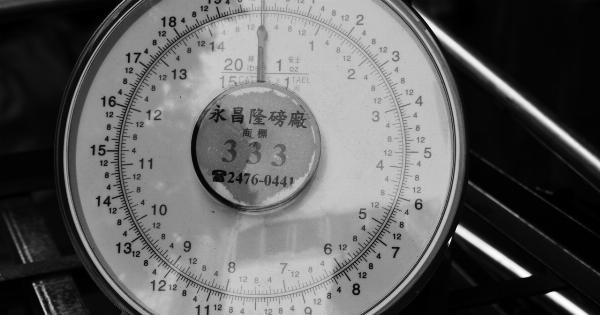Pressure changes are an inherent part of everyday life.
From external factors like societal expectations and work demands, to internal factors like personal goals and self-imposed pressures, individuals face a myriad of challenges that can significantly impact their well-being. Understanding and managing these pressure changes is crucial for maintaining a balanced and fulfilling life.
In this article, we will explore the various pressure changes people encounter in their daily lives and discuss effective strategies for dealing with them.
The Influence of External Pressures
External pressures refer to the expectations, demands, and obligations imposed by the world around us. These pressures can arise from our relationships, workplaces, and society as a whole.
Societal Expectations and Performance Anxiety
Society often sets certain benchmarks and expectations for individuals to meet in various aspects of life, such as education, career, relationships, and appearance.
Meeting these expectations can create immense pressure and feelings of inadequacy, known as performance anxiety. People may feel compelled to conform to societal norms and fear the consequences of deviating from them.
Workplace Stress and Deadlines
The modern work environment is characterized by tight deadlines, high expectations, and demanding workloads. This can lead to excessive stress and pressure to perform.
Meeting rigorous deadlines and achieving targets often takes a toll on mental well-being and overall work-life balance.
Financial Pressures and Economic Uncertainty
Financial stability and security are common concerns for many individuals. Rising costs of living, economic downturns, loan repayments, and the need to make ends meet can create significant pressure.
Struggling with financial obligations can lead to stress, anxiety, and a sense of helplessness.
Family and Relationship Pressures
Family and relationship dynamics are another source of pressure for many individuals. Balancing the expectations and demands of family members, maintaining healthy relationships, and fulfilling responsibilities can be challenging.
Juggling personal and professional commitments can often overwhelm individuals and disrupt their peace of mind.
Internal Pressures and Self-Imposed Expectations
While external pressures play a significant role, individuals also face internal pressures that stem from personal aspirations, ambitions, and self-imposed expectations.
Personal Goals and Achievement Anxiety
Setting personal goals and striving for success can bring a sense of purpose and fulfillment but can also create immense pressure. Achievement anxiety arises from the fear of failure and the constant need to prove oneself.
The desire for perfection and comparing oneself to others can exacerbate this pressure.
Insecurity and Self-Doubt
Feelings of insecurity and self-doubt can put immense pressure on individuals. These thoughts stem from a lack of confidence in one’s abilities, appearance, or personal worth.
Constantly seeking validation and fearing judgment from others can contribute to a persistent sense of pressure.
Managing Pressure and Promoting Well-being
Recognizing and managing pressure changes are vital for maintaining overall well-being and preventing negative impacts on mental and physical health. Here are some strategies to manage everyday pressures:.
1. Prioritize and Set Realistic Expectations
Setting realistic goals and expectations for oneself can help manage pressure effectively. Prioritize tasks and responsibilities, and focus on what is achievable within reasonable timeframes.
Taking small steps and celebrating accomplishments along the way can foster motivation and reduce the burden of self-imposed pressure.
2. Develop Effective Time Management Skills
Time management plays a crucial role in managing everyday pressures. Plan and organize tasks, allocate time slots for specific activities, and avoid overcommitting.
Establishing healthy boundaries and learning to say “no” when necessary can ensure a more balanced and less overwhelming lifestyle.
3. Practice Self-Care and Stress Management
Engaging in self-care activities, such as exercise, meditation, hobbies, and spending quality time with loved ones, is essential for managing pressure.
Integrating stress management techniques into daily routines, such as deep breathing exercises, journaling, or seeking therapy, can provide valuable tools for coping with stress and promoting overall well-being.
4. Seek Support and Connection
Sharing pressures and seeking support from trusted friends, family, or support groups can alleviate the sense of burden and provide valuable perspectives.
Building a strong support network fosters connection and the reassurance that one is not alone in facing everyday pressures.
5. Challenge Negative Self-Talk and Cultivate Self-Compassion
Recognize negative self-talk patterns and challenge them with positive affirmations and self-compassion. Practice self-acceptance and embrace imperfections, understanding that no one is perfect.
Celebrate personal strengths and accomplishments, emphasizing self-worth independent of external validation.
6. Embrace Life Balance and Boundaries
Striving for a balanced lifestyle that encompasses work, leisure, and personal time is crucial for managing pressure effectively. Set clear boundaries between different aspects of life and avoid overextending oneself.
Remember that personal well-being and mental health should always remain a priority.
Conclusion
Pressure changes are an inevitable part of everyday life. Understanding the sources and effects of pressure, both external and internal, empowers individuals to effectively manage and navigate these challenges.
By recognizing the importance of self-care, setting realistic expectations, seeking support, and practicing self-compassion, individuals can mitigate the negative impacts of pressure and cultivate a healthier and more balanced life.































